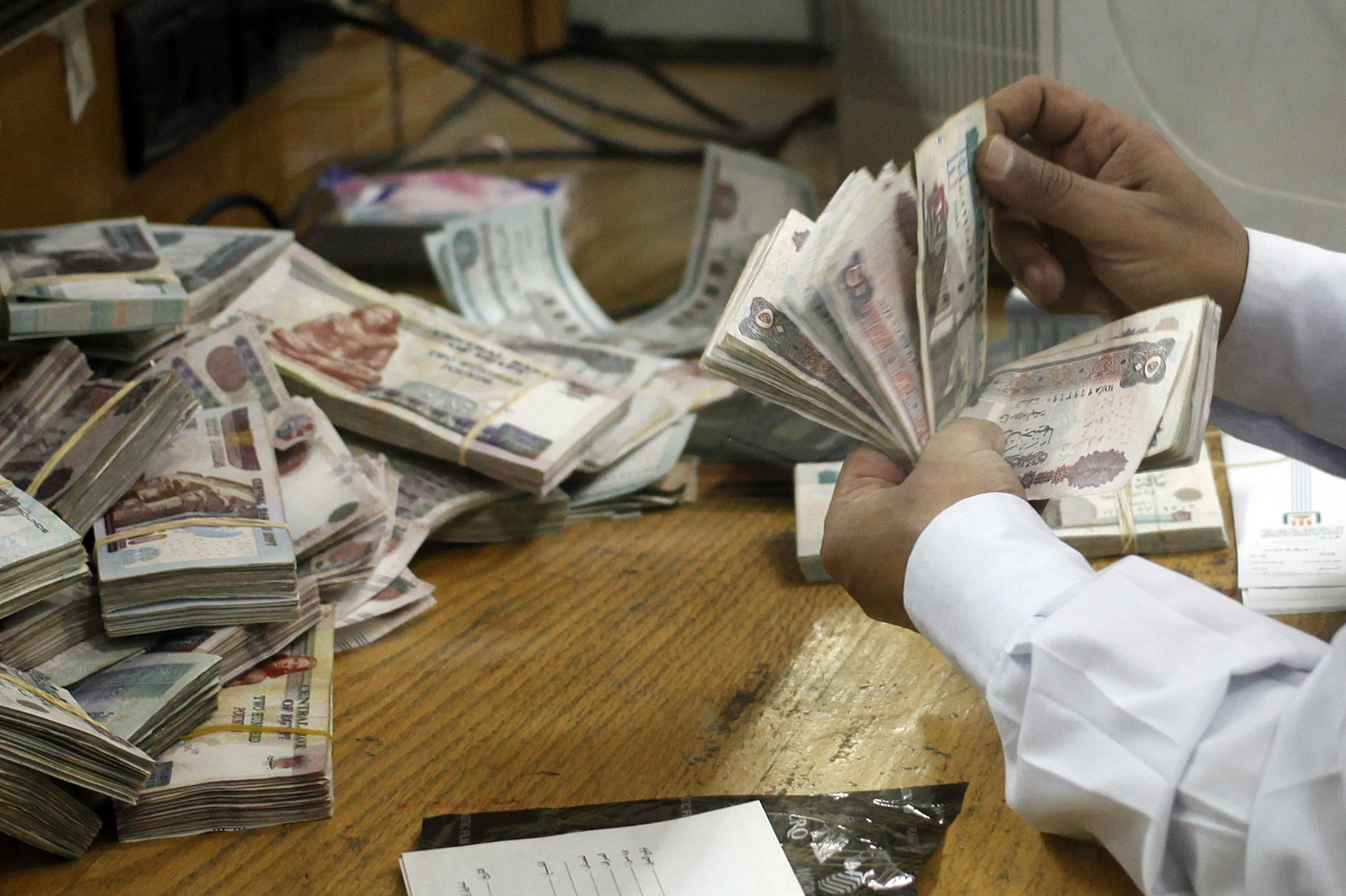Latest NEWS
- Aswat Masriya, the last word
- Roundup of Egypt's press headlines on March 15, 2017
- Roundup of Egypt's press headlines on March 14, 2017
- Former Egyptian President Hosni Mubarak to be released: lawyer
- Roundup of Egypt's press headlines on March 13, 2017
- Egypt's capital set to grow by half a million in 2017
- Egypt's wheat reserves to double with start of harvest -supply min
- Roundup of Egypt's press headlines on March 12, 2017
Egypt plans cash benefits in early 2015 to offset subsidy cuts - minister

An employee counts money at a bank in Cairo September 4, 2014. REUTERS/Asmaa Waguih
By Stephen Kalin and Lin Noueihed
CAIRO, Oct 21 (Reuters) - Egypt will introduce two new cash benefits early next year as part of government efforts to minimise the impact of subsidy cuts on the poor, a government minister said.
President Abdel Fattah al-Sisi's government raised fuel prices by up to 78 percent shortly after he took office in June - a step that his predecessors had shunned for fear of sparking unrest in a country where millions live in extreme poverty.
The price hikes were accompanied by a patchwork of relief measures including free transport in army buses to offset increases in the cost of public transport.
But the government will have to offer the hardest hit Egyptians more help, like the new cash transfers, if it is to successfully implement the next phase of subsidy cuts to reduce a budget deficit that exceeds 10 percent of GDP.
In an interview for the Reuters Middle East Investment Summit, Minister of Social Solidarity Ghada Wali said the initial phase of the two schemes would target about 2 million people in Upper Egypt, the impoverished rural south of the country, at an initial cost of 2.5 billion Egyptian pounds ($350 million).
"We hope to start sometime end of November, early December registering newcomers to the programme," she said, with the first payments available a few weeks later.
Wali said the benefits - which include a scheme for poor working families and another for the elderly and disabled who are unable to work - would be expanded in 2015, but declined to estimate the eventual scope or cost of the nationwide program.
Egypt already operates a benefit scheme that supports about 1.5 million nationwide and which will continue.
The government estimates that more than 26 percent of Egypt's 87 million people are living in poverty and has no reliable statistics on disabled people.
"Our agreement with the ministry of finance is to avail this amount of money in this fiscal year. Six months later we reevaluate and we get into another batch," said Wali, a former representative at the United Nations Development Programme.
Officials hope subsidy cuts will slice 50 billion pounds from government spending in the current fiscal year and plan to completely eliminate energy subsidies within five years.
GATHERING DATA
Sisi, who won a presidential election nearly a year after ousting IslamistPresident Mohamed Mursi following mass protests, has stuck to a tough love message for all Egyptians as his government implements unpopular reforms including tax rises.
The cash benefits for poor families, which Wali said was modeled after similar schemes in Latin America, would require children to attend school and visit health centres to ensure the next generation could attain a better standard of living.
Egypt has little data about its poor and vulnerable citizens because they operate mostly in the informal sector - doing casual work for cash payment and living in informal settlements outside the government's reach.
Wali said her staff had spent the past six months updating databases - in some cases creating them from scratch - and linking them across ministries in order to implement the cash transfers effectively.
The government aims to dispense the cash through post offices, since the poorest Egyptians do not have banks in their villages, let alone their own accounts. It is developing smart cards to distribute the benefits.
Cash transfer schemes in other developing countries have been criticised for their vulnerability to corruption, and Wali said she was taking steps to reduce that possibility.
"There could be holes in the system that we're going to learn about while working and improve while working, but it shouldn't stop us, because no system is bulletproof," she said. (1 US dollar = 7.1500 Egyptian pound) (editing by Janet McBride)










